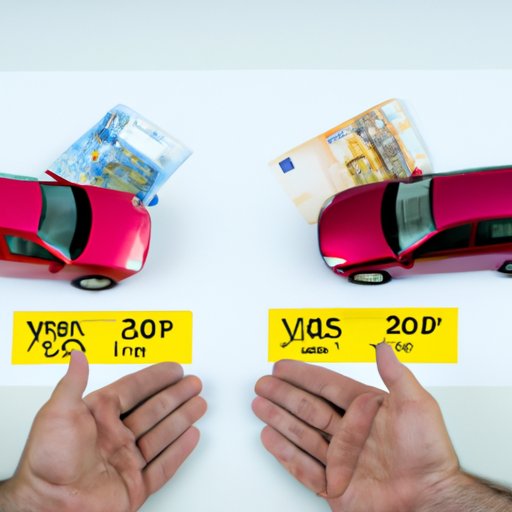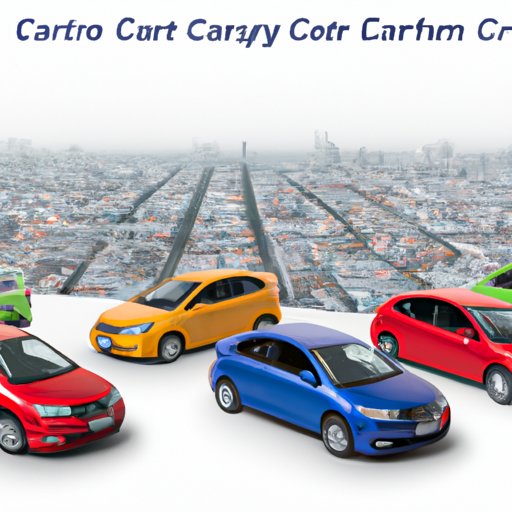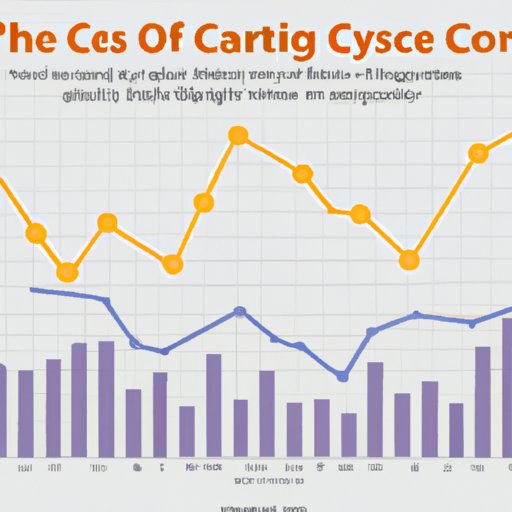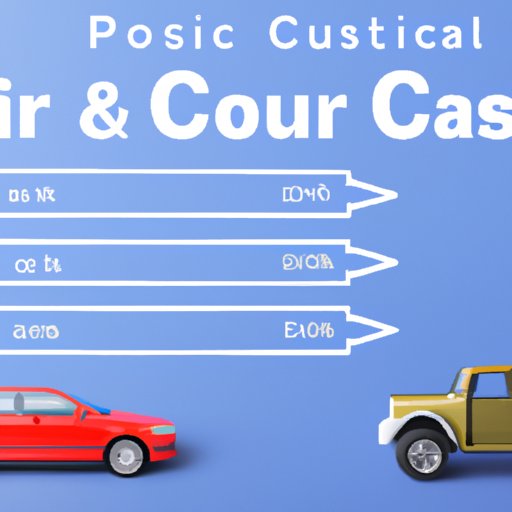Introduction
When it comes to purchasing a car, there is no one-size-fits-all answer to the question of how much it will cost. The total cost of ownership includes a variety of factors, from the initial purchase price to taxes and fees, insurance, maintenance and fuel costs, and more. In this article, we’ll explore the various components that make up the total cost of ownership for different types of cars, as well as regional variations and trends in car prices over time.

Comparing the Cost of New vs Used Cars
When deciding whether to buy a new or used car, it’s important to consider both the advantages and disadvantages of each. On the one hand, buying a new car means that you won’t have to worry about any potential mechanical issues, and you can usually get a longer warranty. On the other hand, used cars tend to be less expensive and may be more reliable than their newer counterparts. Ultimately, the choice between a new or used car depends on your budget, needs, and preferences.
Calculating the Total Cost of Ownership for Different Cars
The total cost of ownership for a car goes beyond the initial purchase price. According to a study conducted by AAA, the average annual cost of owning and operating a new car is $8,698. This includes taxes and fees, insurance, maintenance and fuel costs, and depreciation. Here’s a breakdown of these costs:
- Initial Purchase Price: The amount you pay for the car itself.
- Taxes and Fees: Sales tax, registration fee, title fee, etc.
- Insurance: Coverage for collision and comprehensive damage, liability, personal injury protection, etc.
- Maintenance and Fuel Costs: Regular maintenance (oil changes, tire rotation, etc.), repairs, and fuel.
- Depreciation: The decrease in value of the car over time.
Exploring Factors That Impact Car Prices
The price of a car is affected by a variety of factors, including the vehicle model and year, location, and supply and demand. For instance, according to data from Kelley Blue Book, the average price of a 2020 Honda Accord is $24,869, while the average price of a 2021 Honda Accord is $25,878. Location also plays a role in determining the price of a car; cars in areas with higher demand tend to cost more.

Investigating Variations in Car Prices Across Cities and Regions
Car prices vary not only by model and year, but also by region. According to a study by Edmunds.com, average car prices in the Midwest are lower than those in the Northeast, West, and South. This can be attributed to regional differences in taxes, insurance costs, and other factors. For example, the average cost of auto insurance in the Midwest is $1,093, compared to $1,393 in the Northeast.

Examining Trends in the Average Cost of Cars Over Time
In addition to exploring variations in car prices across cities and regions, it’s also useful to look at historical data on car prices. According to research from the National Automobile Dealers Association, the average price of a new car in the U.S. has increased steadily since 2000, from around $20,000 to nearly $36,000 in 2019. This increase can be attributed to a variety of factors, including inflation, rising production costs, and an increase in the number of features included in new cars.
Analyzing the Cost of Different Types of Cars (e.g. Luxury, SUV, etc.)
Finally, it’s important to consider the cost of different types of cars when deciding which one to buy. Luxury cars tend to cost more than economy cars, and SUVs are typically more expensive than sedans. However, there are also variations within each type of car. For instance, the cost of a luxury car can vary significantly depending on its features, such as powertrain, safety features, and interior amenities.
Conclusion
In conclusion, the total cost of owning and operating a car depends on many factors, including the initial purchase price, taxes and fees, insurance, maintenance and fuel costs, depreciation, vehicle model and year, location, supply and demand, regional differences, and trends in car prices. Additionally, the cost of different types of cars can vary significantly, from luxury cars to economy cars, SUVs to sedans. Ultimately, it’s important to do your research and consider all of these factors when deciding how much to spend on a car.
(Note: Is this article not meeting your expectations? Do you have knowledge or insights to share? Unlock new opportunities and expand your reach by joining our authors team. Click Registration to join us and share your expertise with our readers.)
